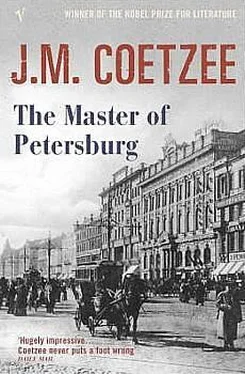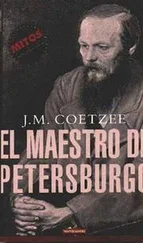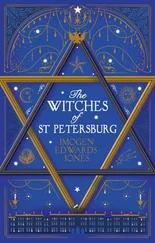When he thinks she is asleep, he begins to tell Anna Sergeyevna of his meeting with Nechaev. He speaks softly, conscious that the whisperings of adults – treacherous, fascinating – can pierce a child's deepest slumbers.
Anna recognizes Nechaev's name, but seems to have only the vaguest idea of who he is. Nevertheless she is ready to advise him, and her advice is firm. 'You must keep your appointment. You will not be able to rest till you know what really happened.'
'But I know what happened. There is nothing more I need to know.'
She makes an impatient gesture. His lack of zeal makes no sense to her: she sees it only as apathy. How can he make her understand? To make her understand he would have to speak in a voice from under the waters, a boy's clear bell-voice pleading out of the deep dark. 'Sing to me, dear father!' the voice would have to call, and she would have to hear. Somewhere within himself he would have to find not only that voice but the words, the true words. Here and now he does not have the words. Perhaps – he has an intimation – they may be waiting for him in one of the old ballads. But the ballad is in no book: it is somewhere in the breast of the Russian people, where he cannot reach it. Or perhaps in the breast of a child.
'Pavel is not vengeful,' he says at last, haltingly. 'Whoever killed him, it is past, the cord is cut, he is free of that person. I want to be taught by him. I don't want to be poisoned by vengefulness.'
There is more he might say, but cannot, now. That Pavel has no interest in the retelling of the story of how he fell. That Pavel is above all lonely, and in his loneliness needs to be sung to and comforted, to be reassured that he will not be abandoned at the bottom of the waters.
A silence falls between himself and the woman. It is the first time since Sunday they have been alone together. She looks tired. Her shoulders slump, her hands are slack, there are creases at her throat. Older than his wife, it comes home to him again: not quite of another generation, but almost so. He wishes he did not have to see it. He has too recently come from Nechaev, youthful, demonic in his energy, as all the lesser demons are youthful.
On an impulse he takes her hand. She looks up with surprise.
'I am not urging you to vengeance,' she says slowly. 'Of course you are right about Pavel: he did not have a vengeful nature. But he did have a sense of what was right and just. Keep your appointment. Find out what you can. Otherwise you will never have peace.'
He is still holding her hand. From it he feels a pressure, answering his, that he can only call kindly.
'Justice,' he reflects. 'A large word. Can one really draw a line between justice and vengefulness?' And, when she seems uncomprehending: 'Isn't that the originality of Nechaev – that he calls himself the People's Vengeance, not the People's Justice? At least he is honest.'
'Is he? Is that what the people want to be told: that it is vengeance they are after, not justice? I don't think so. Why should the people take Nechaev seriously? Why should anyone take him seriously – a student, an excitable young man? What power does he have, after all?'
'Not the power of life, but the power of death, certainly. A child can kill as dead as a man can, if the spirit is in him. Perhaps that again is Nechaev's originality: that he speaks what we dare not even imagine about our children; that he gives a voice to something dumb and brutal that is sweeping through young Russia. We close our ears to it; then he comes with his axe and makes us hear.'
Her hand, that has been a living thing, has suddenly grown lifeless. A woman of feeling, he thinks, releasing it. Like her daughter. And perhaps as easily hurt.
He wants to embrace her, wants to take her in his arms and repair whatever is fractured. He ought to stop this talk, which only repels and estranges her. But he does not.
'After all, you will never recruit people to your cause by invoking a spirit that is alien to them, or means nothing to them. Nechaev has disciples among the young because a spirit in them answers to the spirit in him. Of course that is not how he explains it. He calls himself a materialist. But that is just fashionable jargon. The truth is, he has what the Greeks called a demon. It speaks to him. It is the source of his energy.'
Again he thinks: Now I must stop. But the dry, deathly words keep coming. He knows he has lost touch with her.
'The same demon must have been in Pavel, otherwise why would Pavel have responded to his call? It's nice to think that Pavel was not vengeful. It's nice to think well of the dead. But it just flatters him. Let us not be sentimental – in ordinary life he was as vengeful as any other young man.'
She gets to her feet. He believes he knows the words she is going to speak, and, if only for form's sake, is ready to defend himself. You call yourself Pavel's father, but I do not believe you love him – that is what he expects. But he is wrong.
'I know nothing about this anarchist Nechaev, I can only accept what you tell me,' she says; 'but as I listen it is hard to tell which of you, you or Nechaev, desires it more that Pavel should belong to the party of vengeance. I am nothing to Pavel, I am certainly not his mother, but I owe it to him – to him and his memory -to protest. You and Nechaev should fight your battles without dragging him in.'
'Nechaev is not an anarchist. That is the mistake people keep making. He is something else.'
'Anarchist, nihilist, whatever he is, I don't want to hear any more of it! I don't want strife and hatred brought into my home! Matryona is excited enough as it is; I don't want her further infected.'
'Not an anarchist, not a nihilist,' he continues doggedly. 'By giving him labels you miss what is unique about him. He does not act in the name of ideas. He acts when he feels action stirring in his body. He is a sensualist. He is an extremist of the senses. He wants to live in a body at the limits of sensation, at the limits of bodily knowledge. That is why he can say everything is permitted – or why he would say so if he were not so indifferent to explaining himself.'
He pauses. Again he believes he knows what she wants to say; or rather, knows what she wants to say even when she herself does not: And you? Are you so different?
'Why do you think he chooses the axe?' he says. 'If you think of the axe, if you think of what it means – ' He throws up his hands in despair. He cannot decently produce the words. The axe, instrument of the people's vengeance, weapon of the people, crude, heavy, unanswerable, swung with the full weight of the body behind it, the body and the life's-weight of hatred and resentment stored up in that body, swung with dark joy.
A silence falls between them.
'There are people to whom sensation does not come by natural means,' he says at last, more evenly. 'That is how Sergei Nechaev struck me from the beginning – as a man who could not have a natural connection with a woman, for instance. I wondered whether that might not underlie his manifold resentments. But perhaps that is how it will be in the future: sensation will not come by the old means any longer. The old means will be used up. I mean love. Love will be used up. So other means will have to be found.'
She speaks. 'That is enough. I don't want to talk any more. It is past nine. If you want to go – '
He rises, bows, leaves.
At ten o'clock he is at the rendezvous on the Fontanka.
A high wind blows scuds of rain before it and whips up the black waters of the canal. The lamp-posts along the bare embankment creak in a concert of jangling. From roofs and gutters comes the gurgle of water.
He takes shelter in a doorway, growing more and more testy. If I catch cold, he thinks, it will be the last straw. He catches cold easily. Pavel too, ever since childhood. Did Pavel catch cold while he was living with her} Did she nurse him herself, or was that left to Matryona? He imagines Matryona coming into the room with a steaming glass of lemon tea, stepping gingerly to keep the glass steady; he imagines Pavel, his hair dark against the white of the pillow, smiling. 'Thank you, little sister,' says Pavel in a hoarse boy's-voice. A boy's life, in all its ordinariness! With no one to overhear him, he lowers his head and groans like a sick ox.
Читать дальше












